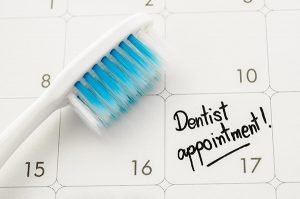Cold Sores and your Dental Appointment at A Plus Dental
 Are you concerned that you might need to change your dental appointment due to common cold sores?
Are you concerned that you might need to change your dental appointment due to common cold sores?
Don’t worry! If you happen to have a cold sore, just contact us and let us know about your condition so we can reschedule your appointment!
Cold sores typically heal in about 8 to 10 day and we can resume your normal dental care at that time!
If you’re a little bit unsure if you have cold sores or canker sores or, here’s an illustration of the difference.
Cold sores, sometimes known as fever blisters, are small, fluid-filled ulcers that appear on your lips and around your mouth. They can last over a week and cause discomfort as well as embarrassment due to their unpleasant appearance.
For years, cold sores were considered inevitable and untreatable. Treatment was to let them run their course, causing pain the entire time. Today, however, there are safe and effective ways to help stop them or shorten the time they appear on a person’s face, and A Plus Dental is here to share those approaches!
The best defence is an early one
The best way to treat cold sores is to attack them even before they become visible. This means knowing early cold sore symptoms and having the right medications/treatments on hand for early treatment. It is also essential to understand how to deal with symptoms, even if early treatment reduces those symptoms.
Additionally, people prone to cold sores should know what triggers them, and avoid those triggers to reduce the number of outbreaks. Finally, because contact spreads cold sores, it is essential to understand how to prevent spreading them to others and back to yourself.
Beating cold sores, early!
The medicines that are proven to work on cold sores are antivirals. Antivirals stop a virus from replicating. This, in turn, can prevent cold sores from developing, and if they do develop may reduce their size and healing time;
So one effective strategy is to keep antiviral medications in your medicine chest so that you can begin using them at the earliest possible stage. Antiviral drugs are only available through a prescription and are well-tolerated by most people, though their use must be discussed with your doctor.
Cold sore antivirals come in two different forms:
- Oral medications that are taken by mouth
- A topical medication that is applied directly to the area
If you regularly suffer from cold sores, it is good to have your prescription filled out and ready for the pharmacy. This takes out one step, and time, in fighting back as soon as possible.
Your medication can be applied or taken as soon as tingling or other symptoms start. This is important because antivirals are most effective when used before the cold sore can even be seen.
What treatments are available for cold sores?
You can’t really “cure” a cold sore, but until it goes away you can avoid some of the pain it causes by:
- avoiding spicy or acidic foods
- applying ice
- using over-the-counter remedies
- using natural remedies
Find medicines that contain numbing agents such as phenol to reduce discomfort, and menthol to minimise cracking and soften scabs. These medicines must be used frequently for best effect. If over-the-counter remedies don’t work, it’s time to talk to your doctor.
Your doctor may prescribe an anaesthetic gel to alleviate pain or oral antiviral medication to speed healing. The oral antiviral medicines available for treatment include acyclovir, famciclovir, and valacyclovir. These medicines are most effective when treatment starts within the first 48 hours of the outbreak. Acyclovir and another antiviral medication called penciclovir also come in topical forms.
Cold sores can become complicated by a bacterial infection, so it is also essential to keep them clean by washing gently with soap and water as needed.
How can I prevent cold sores?
If you have cold sores once, the virus is always with you (in fact, the virus is often present in people who show no signs of cold sores). At this point, the best way to deal with cold sores is to avoid their triggers.
Doctors list several potential triggers:
- Viral infection or fever
- Hormonal changes, such as those related to menstruation
- Stress
- Fatigue
- Exposure to sunlight and wind
- Changes in the immune system
Preventing Spread
To avoid spreading the cold sore virus:
- Avoid intimate contact including kissing and other skin-to-skin contacts.
- Don’t share personal care items such as toothbrushes, utensils, or towels.
- Don’t share lip products including lipstick, lip gloss, or foundation.
- Replace your toothbrush after the sore has healed to prevent re-infecting yourself.
- Don’t pick at a cold sore, and wash your hands each time you apply ointment or touch the sore. Keep your hands away from your mouth, and wash your hands frequently.
- If sunlight triggers cold sores, apply sunscreen daily.
It All Adds Up at A Plus Dental!
A Plus Dental believes in honesty, trust, individuality, compassion and comfort. Our goal is to give our Campbelltown area patients, from infants to seniors, caring, relaxing treatments in a comfortable environment. When you choose A Plus Dental, you take the next step towards a beautiful, healthy smile with teeth that feel great in your mouth!!
We have over 30 years of combined experience and treat each of our patients with the utmost care and respect.
Call your Campbelltown dentist on (02) 4627 3833 or visit us at Suite 3/300 Queen Street in Campbelltown.


